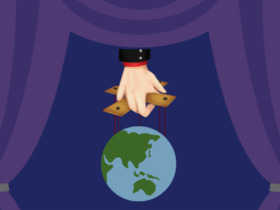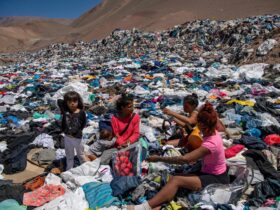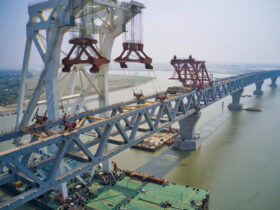The Ituri crisis refers to the most intense period of violence that occurred in the Democratic Republic of the Congo (DRC) between 1999 and 2003. However, since late 2017, aggression and atrocities have reignited, with deadly attacks occurring almost on a monthly basis. The difference with the present conflicts is the increasing difficulty to label this as an inter-ethnic war, due to the number of conflicting agendas from groups involved. Magnifying the root of conflict reveals hidden agents of chaos ravaging the area, forcing a reassessment of how to attain peace.
Ituri is a northeastern province in the DRC that has seen extensive ethnic conflict occur since 1972. Violence peaked between 1999 and 2003, with an estimated 50,000 deaths. The main root of the altercations is that the Hema community, who are historically herders, were treated much more favorably during the Belgian colonization of the DRC (ending in 1960), placing them higher up on the social hierarchy. Meanwhile, the Lendu community, which is traditionally agricultural, is often the aggressor due to feeling unjustly stripped of land, natural resources and local political power.
The conflict diminished after 2003 due to European Union peacekeeping missions, but has been reignited since 2017. Part of the reason for this is the continuous nature of the issues, with the disputes never fully ending and with groups holding onto their weapons from previous altercations. More importantly, the reason a complete cessation is so challenging is due to it being far more than a bilateral ethnic conflict. A deeper analysis of the crisis reveals that other military and ethnic groups are involved, including heavy political meddling from exterior actors due to the province’s wealth in resources — especially oil.
Since reigniting in 2017, 360,000 people have been displaced to neighboring provinces and countries, with over 1,000 casualties. Unlike the war from 1999 to 2003, there has not been a structured ethnic militia engaging in the conflict. The violence is mostly carried out by Lendu youths, not necessarily backed by their entire ethnic community, with some Hema youths carrying out reprisals. It is clear that there is no overarching command as assailants claim to be part of different groups, making intervention all the more challenging.
The DRC’s military, FARDC, is perceived to be a very unstable force due to the levels of corruption and underfunding. FARDC frequently attempts to strike back at Lendu communities to limit their exertion of aggression, but this has just dispersed the youth groups. The dispersion enables them to spread terror in internally displaced camps, and take back some of their lost areas. Lendu youths do not fear the DRC’s armed forces, as they see the army as the natural ally of the Hema’s. Attacking army positions both helps them get rid of their enemy and enables them to take their firearm weapons.
Aside from the military, other actors involved reveal why attaining peace in the region is such a challenge. These include other ethnic and rebel groups involved on the ground, as well as opposing political entities meddling to reach favorable outcomes. Due to past altercations in Ituri and in the Eastern DRC in general, the bordering countries of Rwanda and Uganda have historical ties to armed groups and rebellions in the region. A Congolese government official claims that migrants from the Hutu community from Rwanda fuel the violence. He asserts that they are involved both as military trainers for the Lendu’s, and as protectors of the Hema’s herds.
Representatives of Congolese security also outline that the M23 movement, a rebel group responsible for violence just south of Ituri in 2012, is attempting to profit from the altercations from the Ugandan side. Former members of the Congolese Rally for Democracy (RCD-K), a political party and former rebel group, also own territory in the region, it is historically supported by Rwanda and is currently supported by the Ugandan government. One of the main issues of this crisis has been the continual involvement of foreign ‘invisible hands’ that help organize attacks and provide equipment, a complaint shared by several archbishops in the region.
Due to the fragile relationship between the two ethnicities, external actors are pitting them against each other in order to rid the areas of inhabitants and exploit the benefits of the land, chiefly natural resources such as gold and oil. The greed for the district’s resources explains the heavy involvement by Uganda and Rwanda. Illegal resource exploitation has long been a pillar of the continuation in violence. The United Nations mission in the DRC explained in 2004 that inter-militia conflict will not cease in the region until the government takes care of extracting the natural resources in a credible fashion.
However, while natural resources have always played a key aspect of violence in Ituri, oil is a particular resource that was not as prominent in the 1999 to 2003 conflict as now. Ituri is incredibly rich in oil, Lake Albert makes up much of its eastern border and is the main oil source of the region. There has been a substantial increase in oil discovery over the past decade. Therefore, despite the aforementioned history and regional factions of the area contributing to the crisis, oil is now an undoubtable key driver. Lake Albert’s oil exploration is divided into five blocks, with two being on the Congolese side of the lake, and three being on the Ugandan side. The majority of the lake and its basin are located on the Ugandan side, the country has therefore been able to control a favorable majority of the oil.
The oil deposits at Lake Albert have often taken the center stage of the relationship between the DRC and Uganda. During the previous Ituri conflict, the Ugandan government altered its alliances with local armed groups frequently to attain its highest possible influence. Its main priorities in choosing alliances were to keep Uganda’s influence in the region high while limiting the DRC’s influence, and most importantly securing the extraction operations of their oil partners, Heritage and Tullow Oil, two foreign companies attempting to maximise profits in the region. Considering the uptake in oil discoveries on the Congolese blocks since the last Ituri conflict, it isn’t hard to imagine why Uganda might still support rebel militias on the Congolese side.
A closer look at these big oil corporations shows how rapidly the link to conflict can be made.
They are heavily involved in the political climate of the region, oftentimes even directing it, implementing everything but a laissez-faire attitude to their surroundings. In Angola, one of the DRC’s neighboring countries, Heritage Oil hired Executive Outcomes, a private military company from South Africa, in order to drive UNITA (Angola’s second largest political party) rebels away from Heritage’s oil extraction sites. The Executive Outcomes attacked areas under UNITA’s control in accordance with Heritage and the Angolan military. As conflict near an extraction zone tampers an oil company’s ability to do business, it is highly probable that oil firms are taking sides in the Ituri conflicts, in order to ensure continuous profits.
This assertion is strengthened when considering that Heritage Oil cooperated with Ugandan groups in the 1999 to 2003 Ituri crisis, as well as admitting to the DRC government that it had been striking deals with the leaders of rebel groups occupying Ituri. Heritage is not alone though, the Congolese government accused both Heritage and Tullow Oil of working with the Ugandan army to illegally cross the DRC border for oil exploration purposes, resulting in Congolese fatalities. Seeing as the Congolese government is the one supporting the Hema’s in the Ituri conflict and the two companies along with the Ugandan government seek to act nefariously toward the Congolese government, the aforementioned ‘invisible hands’ supporting Lendu attacks might not be as invisible as they seem.
Both companies, Heritage and Tullow, still controlled the majority of Lake Albert’s projects until this year, despite there being a handful of smaller shareholders involved. A third company, Total SE, has recently acquired all of Tullow Oil’s stakes on the Ugandan Lake Albert projects, as well as the rights to build an East African pipeline whose source is at Lake Albert. Tullow’s motivation to sell to Total concerned itself with improving its financial situation, although fleeing the conflict-ridden area might well be a secondary factor.
Total has also been one of two major firms involved in exploring the Eastern DRC for more oil deposits. The French company outlined the risks associated with oil exploration in Ituri in a 2013 report, which specifically says that inter-community tensions and conflict dynamics may be affected by the search for oil. It had already identified at this point that certain communities will feel excluded by the benefits that oil brings, creating greater tension. Land ownership has always been a root of violence in Ituri due to competition over resources such as gold, therefore any hope of benefiting from further oil deposits only amplifies the violent meddling by corporations, bordering countries, and the DRC government itself.
The Hemu communities, many of which are now in internally displaced camps, are convinced that the attacks are fueled by the greater political interest toward oil exploration, rather than continued hatred between them and the Lendu community. An Ituri politician and businessman explains that their areas are full of oil deposits, and that chasing out communities with violence is considerably easier than incurring the costs for relocating them to use the areas for oil exploration. It is obviously challenging to uncover which government and oil companies are supporting rebel groups, as they are trying to keep their activities secret. However, the past suggests much greater forces are at war in Ituri than two ethnicities.
The communities of Ituri seem to be much more concerned with agricultural land ownership, the Hema’s want to retain their land and Lendu’s want to expand their influence. However, external actors are blinded by Ituri’s gold studs and particularly the oil deposits surrounding Lake Albert, using previous conflict in the region as an excuse to have no regard for humanitarian decency, pouring fuel on a flame that was slowly fizzling out.
The most infuriating part of the current Ituri conflicts is that much like the rest of the DRC, the region is incredibly rich in natural resources, but this wealth actually inhibits its development rather than benefiting it. Total SE outlined in their 2013 report how oil exploitation could lift up entire communities and the DRC’s economy in general, sadly this assessment strays far from reality. Military and rebel groups are clearly being strengthened by nefarious actors, the economy is being distorted as the agriculturally-intensive sector is getting eclipsed by the greed for oil, and border tensions and internal corruption is bound to worsen.
The international community can attempt to halt conflict with peace delegations as it did in 2003, but this does not solve for the invisible hands manipulating it. Local humanitarian groups offer significant help in relieving the ample health problems in internally displaced camps. However, until there is greater credibility and transparency from the governments of the DRC, Uganda and Rwanda, as well as by the oil corporations, local aid is all that can be done for the moment.







